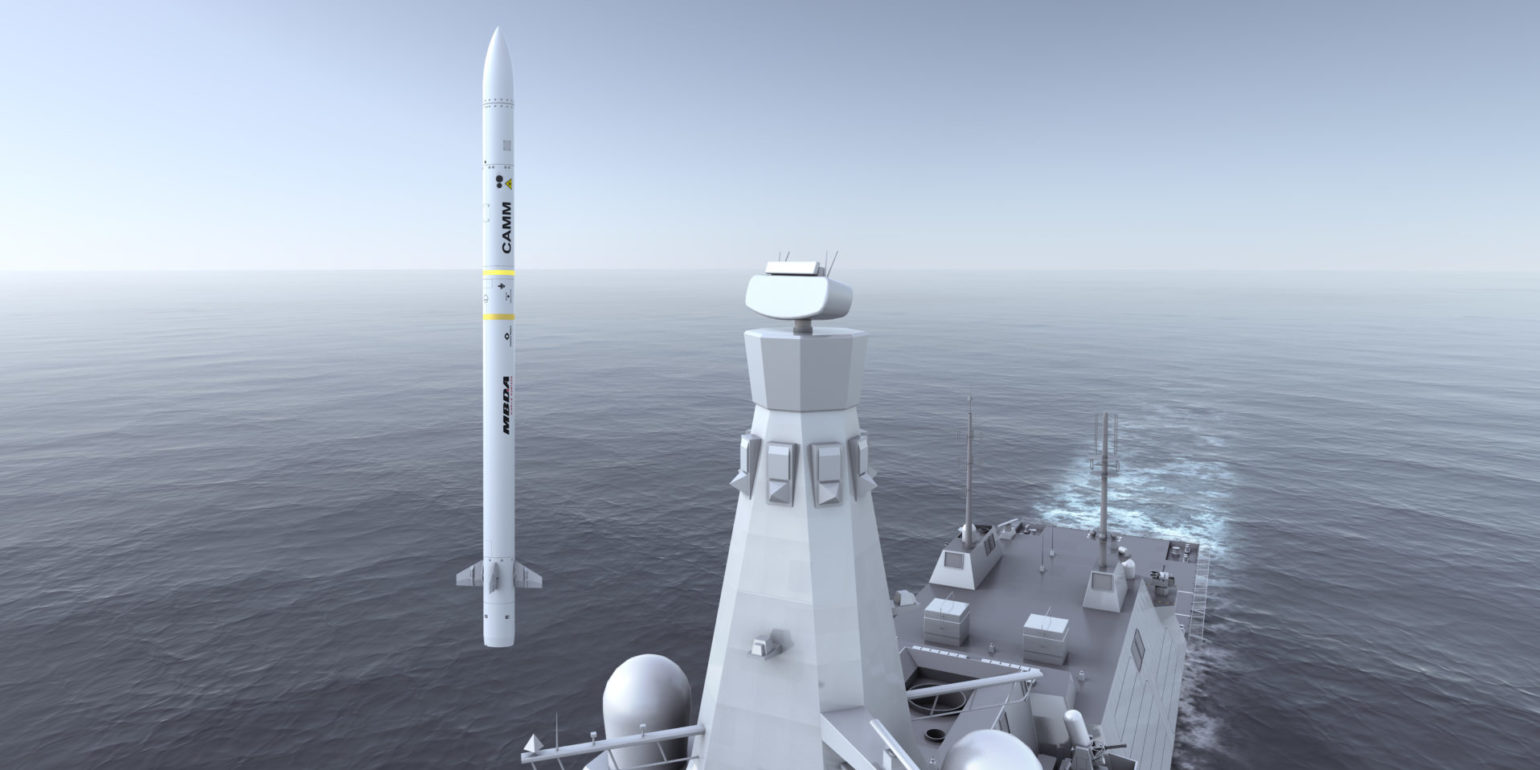Quick Facts
| Variants | N/A |
| Role and Mobility | Local Area Air Defense; Ship-Based |
| Interceptors and Range |
Common Anti-Air Modular Missile (CAMM) Range: 25 km Speed: Mach 3 Common Anti-Air Modular Missile Extended Range (CAMM-ER) Range: 45 km Speed: Mach 3 |
| Sensors |
Parent ship’s surveillance radars Active, next generation RF seeker and two-way data link on interceptor |
| Targets | Combat Aircraft and Supersonic Anti-Ship Missiles |
| Status/Exports | Operational; United Kingdom |
| Designer/Producer | MBDA |
Overview
The Sea Ceptor missile system is a next generation, ship-based, all weather, air defense weapon system.[i]It can be integrated into a wide range of platforms due to two main features: its “soft launch” weapon technology and its lack of dedicated fire control radars. The “soft launch” technology makes the launch system compact, allowing it to be installed in more locations on a platform; with no dedicated fire control radars, the Sea Ceptor system can be targeted using its parent ship’s surveillance radars.[ii]
The Sea Ceptor has no variants, as it is based on the Common Anti-air Modular Missile, an advanced and modular missile that can be operated from sea, land, and air platforms.[iii]
Strategic Implications
The Sea Ceptor provides the United Kingdom’s Royal Navy with an advanced air defense system that is designed to counterattack modern threats. The system’s lack of a dedicated fire control radar means that it can integrate easily into larger surveillance networks. It has multiple performance capabilities for all weather conditions and saturation attacks, and the modular design of the CAMM makes the system operable from a wide spectrum of ships.
Timeline
2020 (Planned): Sea Ceptor planned to be deployed on Type 26 combat ships as replacements of the Type 23 combat ships.[iv]
May 2018: Sea Ceptor enters into service with the UK’s Type 23 frigates.[v]
September 2017: The first Sea Ceptor missile was successfully fired at sea from the Type 23 frigate, HMS Argyll.[vi]
November 2014: Brazil preferred Sea Ceptor to deliver local area air defense for its Tamandaré class corvettes.[vii]
May 2014: MBDA received a contract from the New Zealand Ministry of Defense to supply Sea Ceptor for the Royal New Zealand Navy’s ANZAC Frigate Systems Upgrade project.[viii]
January 2012: MBDA announced the award of a £483M contract to develop the Sea Ceptor as a replace the Vertical Launch Sea Wolf on the Royal Navy’s Type 23 frigates.[ix]
Recent News
References
[i]https://www.mbda-systems.com/product/sea-ceptor/
[ii]https://www.naval-technology.com/projects/sea-ceptor-missile-system/
[iii]https://www.thinkdefence.co.uk/uk-complex-weapons/common-anti-air-modular-missile/
[iv]https://www.naval-technology.com/projects/sea-ceptor-missile-system/
[v]https://www.theguardian.com/uk-news/2018/may/24/uks-new-sea-ceptor-missile-system-enters-into-service
[vi]https://www.gov.uk/government/news/defence-minister-announces-successful-first-firings-of-sea-ceptor-missiles-to-protect-new-aircraft-carriers
[vii]https://www.naval-technology.com/projects/sea-ceptor-missile-system/
[viii]Ibid.
[ix]http://www.navyrecognition.com/index.php?option=com_content&view=article&id=307

